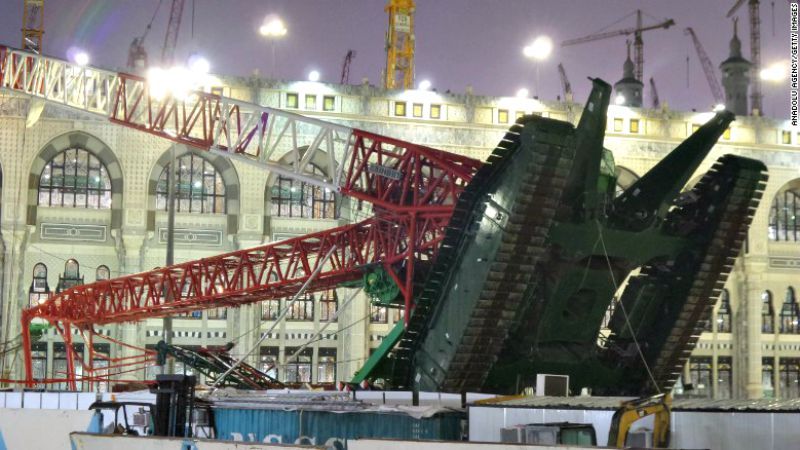Saudi court: No blood money for Makkah crane crash victims


Makkah’s Summary Court ruled on Sunday that victims and affectees of the 2015 crane crash at the Grand Mosque would not receive any diyyah (blood money) or compensation, the Saudi Gazette reported.
The court added that none of the damages to human life or property at the Grand Mosque would be compensated as the disaster was caused by natural reasons with no human element behind it.
The crash reportedly resulted in the deaths of at least 109 people, and 238 injuries when a massive construction crane fell on the eastern wall of Makkah’s Grand Mosque in September 2015, less than a fortnight before Haj was supposed to start.
Earlier in October, the court had acquitted all 13 employees of the Binladen Group who were in charge of operating the giant crane and were charged with negligence – it was observed that they were not criminally responsible for the incident.
The crane that crashed belonged to the Saudi Binladen Group that had erected it as part of a multi-billion-dollar expansion plan to accommodate the increasing numbers of faithful.
King Salman had ordered that all the victims of the crash should be paid compensation, suspending the firm from new public contracts for several months after the tragedy. He ordered that all families of the dead be paid compensation up to 1 million Riyals while 500,000 Riyals should be the amount set for each incapacitated injured.
However, the King’s orders were not binding as they had nothing to do with the blood money or compensation that is decided by the court.
The judge in the case said that the court took its decision after a thorough review of technical, engineering, mechanical and geophysical reports, in addition to the careful study of reports of the Presidency of Meteorology and Environment which claimed that it was the heavy rains and thunderous storms that caused the collapse of the crane.
“The crane was in an upright, correct and safe position. There was no error committed by the accused who took all the necessary safety precautions,” the court stated.
“The Attorney General did not present any solid evidence that the Binladen Group had violated safety rules. The evidence he had presented was not sufficient to incriminate the defendants,” it further added.
The court also said that the presence of the crane in the Grand Mosque for over two years had been approved by authorities.
“The Attorney General did not present any solid evidence that the Binladen Group had violated safety rules. The evidence he had presented was not sufficient to incriminate the defendants,” it concluded.
Leave a Comment